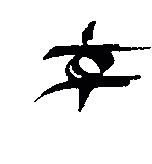
WOID XXII-09.
One Day as an Object Lesson.
I’m referring to July 20, 1932, the day of the Preussenschlag (Coup against Prussia), considered by most historians to mark the end of the Weimar Republic.
Perfectly legal. That was the day the German Chancellor, Franz von Papen, took over the administration of the Land of Prussia, the largest state in German Federation — including its police force. Prussia was in the hands of the SPD, the German Socialist Party, and Papen claimed the violence there had got out of control and “the locals couldn’t handle it,” to quote a president.
Pefectly legal, mostly, as the German Constitutional Court explained, arguing that, yes, the dismissal of the Socialist Government was illegal, but WTF. Papen's position was argued by Carl Schmitt, the darling of the American Right today and an inspiration to John Yoo, the President's legal adviser.
“Moving forward,” as was recently said, the experiment was extended to other Länder. It was decided that “specialized training and standardized equipment should be deployed to responding agencies.” In Prussia the deployment was put under the guidance of the newly-appointed Prussian Minister of the Interior, Hermann Goering, who ordered the local police to co-ordinate with the Nazi paramilitaries, the SA, who presumably had the right kind of training. As to standardized equipment and its use, Goering told the forces he would accept full responsibility: ”Every bullet that now leaves the barrel of a police pistol is my bullet… I gave the order, and I stand by it.”
Did that include a promise of pardons? Goering’s actions were the continuation of a long-term process of placing friendly judges and administrators on all levels of the system, along with the occasional political assassination, all against a background of chicanery by elected representatives and widely tolerated violence against the Left.
July 20, to quote a recent German historian, was “One day as an object lesson: a lesson to be learned from the antidemocratic unscrupulousness of the conservatives of those years.” Why “of those years?”
It wasn’t until March 23, 1933 that Hitler assumed dictatorial powers — legally, of course, if you ignore the fact that a large number of the deputies who might have voted him down were already in jail, and the National Parliament was surrounded by thugs. Not until July of 1936 did Carl Schmitt declare the process complete, explaining that Hitler’s slaughter of his own supporters (not legal, even by the standards of the Weimar Republic), was “The highest form of Justice.”
Let's not pretend these people don't know what they're doing.
July 22, 2020; last revised July 22.